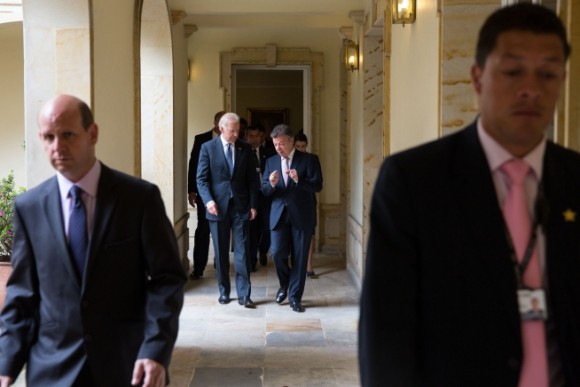
Almost 100 years ago, nearly 100,000 men on the Western Front in Europe stopped fighting the Great War for a while. Some stopped for a few days, some — especially those who began the truce on Boxing Day or later — lasted until the start of 1915. In some places, this friendliness only stopped because the higher-ups got nervous. Some battalions were moved from the front lines with little warning, ostensibly because they had fraternized with the enemy. With the war only a few months old, but not, as had been promised, “over by Christmas” hundreds of thousands of men tried, briefly, to make that so. Had they succeeded, the world might be incomprehensibly different than it is today. It’s likely the second world war would never have been fought. So different would country borders, human lives, and events have been, that it’s sort of pointless to think about it. But it’s difficult not to.
For the last week or so, a few newspapers and magazines — mostly British — have published pieces on the famous, seemingly mythic, but quite true Christmas Truce. Either in celebration of its 99th year, or in a banal effort to update it for modern, troubled times, or just as an excuse for a soccer game, people still remember it because it’s a powerful, almost-cinematic story. But they don’t remember it the way we remember “the troops” as an abstract, vaguely positive concept. They don’t remember it as something that could be more than a nice Christmas story.
The brilliant film The Americanization of Emily doesn’t simply satirize war, but it also critiques the way we remember it — through memorials, parades, and war widows who wring their hands. It’s much harder and arguably crueler to go after the well-intentioned mourning the dead like that. But it has a larger purpose. We are told that the soldiers fight for us and for our freedom. They even fight for those of us who are ungrateful. Like Jesus dying for heathens who weren’t interested in his sacrifice, we are guilt-tripped by slogans, flags, and bumper stickers into assuming — at least initially — that a conflict is good by virtue of American participation in it.
And though nobody should condemn individuals mourning, the mass mourning for troops is what must end. When one soldier or another dies in Afghanistan, I didn’t lose a loved one. The only one who lost a loved one is the friends and family of that one soldier. And they may have participated in the war in miniscule. They may have joined up because of limited economic opportunity. They definitely may have meant well and caused relatively little harm. But that is not heroism. And at least for the politicians, war must stop being forgivable simply because you expressed noble virtues when you began it. And thoughtlessly supporting the troops is a nasty, sneaky crack through which more and more forgiveness and moral relativism sneaks through until it doesn’t matter what happened because America means well.
What does that have to do with the truce, now winding down 99 years ago across Western Europe? The men who truced had seen six months of war and thought, that’ll about do. They traded buttons and baubles from their uniforms. They played soccer. They shook hands. Next year, a grand soccer game will be held in Ypres, Belgium, in honor of the truce and where it first began. Hopefully the sports won’t be all that is celebrated.
Every Christmas Eve I toast the truce with some kind of semi-appropriate alcohol — whisky, scotch, or gin. I anachronistically read the war poems of Wilfred Owen and his mentor Siegfried Sassoon. Those two Brits hadn’t yet joined up, but their bitter, antiwar poems fit with the mood. I have no reason to feel the sense of ownership for the truce that I do. My country hadn’t even joined the fight. I have only the faintest knowledge of a great great uncle or two who was in the war somewhere. But if the American fighting men (and women) are supposed to be fighting for us, no matter the conflict or the cause or their actions, why can’t I pick the truce instead? Why can’t I have a piece of it, and a piece of Raoul Wallenberg, and a piece of all the draft dodgers, from the ones who burned their draft cards in protest, to the ones who quietly slinked away to Canada? Why can’t we have holidays and parades for them, those real people who chose to do something besides take the war that was offered them? And why can’t we forget the hazy, pillowy-soft repetition that says the Spanish American War is the Great War, is World War II, is Vietnam, is Iraq. And as long as you joined up, you’re a hero? Because we don’t want to tell grieving families that the war their loved one died in was a mistake? What’s the cost of that mass politeness? Well, it’s Iraqi car bombs that are blurbs, not front page news. And it’s the war in Afghanistan becoming staggeringly unpopular 12 years too late. But maybe, finally, it’s also how America didn’t go into Syria, even though for a few stomach-twisting weeks, it felt inevitable. It always feels that way.
Wars, once they began, seem like they will never end. But once in a while, a few — or a few thousand men — try to stop them. And there are still soldiers who willingly sign up for war, then turn against it. Support those troops. Remember those troops.




